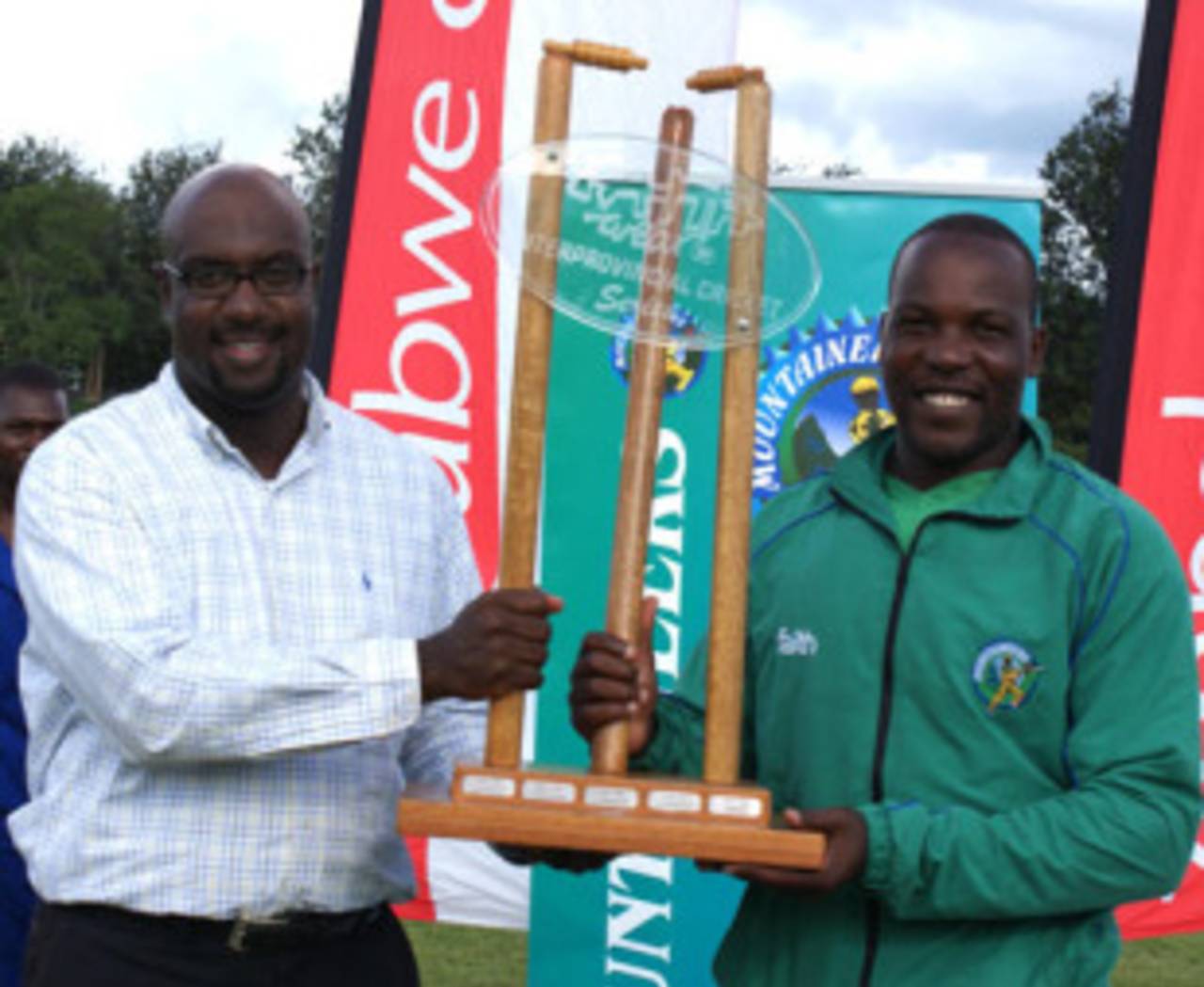Ozias Bvute has resigned as managing director of Zimbabwe Cricket (ZC) but has declared his intention to stay involved in the game in the future. Bvute, who was appointed after Vincent Hogg resigned in 2004, has been replaced by his deputy Wilfred Mukondiwa.
"I have relished the job for the last few years and look forward to remaining involved in the years to come, albeit in a different capacity," Bvute said in a ZC release. "The next phase is to ensure that our team becomes consistently competitive and I have every confidence in Mr Mukondiwa's ability to take up this challenge."
Bvute has been involved in ZC for close to 12 years. He first joined in 2001 as part of the Integrated Task Force that was set up to develop a strategy that would make cricket a more representative sport in Zimbabwe. Prior to the 2000s, cricket in the country was the domain of the minority white population and ZC appointed a team to look into how they could create opportunities for black African players to reach the highest level.
The aggressive transformation programme which followed was not received well in all quarters and a walkout of white players in 2004 crippled Zimbabwean cricket. Hogg resigned in the aftermath and Bvute took over with the task of rebuilding the sport. Zimbabwe had to field a squad of inexperienced players and their results worsened leading to Bvute and Peter Chingoka, the chairman of ZC, campaigning for Zimbabwe to withdraw from Test cricket.
The country went into self-imposed exile for close to five years. The beginning of that period also coincided with economic collapse in Zimbabwe as a whole. As the political situation improved and investors returned to the country, albeit in small numbers with small amounts of money, ZC was able to secure funding.
They revamped their domestic set-up in 2009 and introduced a franchise system. They were also able to reintegrate many of the players who had previously abandoned the sport. Alistair Campbell became chairman of the cricket committee, Heath Streak was named national bowling coach and Grant Flower came out of retirement to play for a while before taking up the role of batting coach. Foreign players and coaches also showed an interest in the country with the likes of Jason Gillespie, Lance Klusener and Nick Compton coaching and playing in the franchise system.
It was through the new structures that Zimbabwe began to prepare for a Test return. They played numerous series against the A sides of countries such as New Zealand, Australia and South Africa and made their Test return last August, beating Bangladesh in Harare. Zimbabwe have subsequently struggled, losing to Pakistan and New Zealand (both home and away) and they have not achieved the desired results in the limited-overs versions either but are producing players that promise better days are in sight.
Two issues remain: their schedule and their financial status. As matters currently stand, Zimbabwe will not play another Test this year. They were due to host Bangladesh in August but asked that the tour be postponed because scarifying work needs to take place at the grounds in Harare and Bulawayo. The October date they suggested to the BCB was rejected because Bangladesh will be engaged in their own domestic competition, so the series looks set for April 2013.
The ongoing Twenty20 tri-series also featuring South Africa and Bangladesh will be their primary preparation for the World Twenty20 in September. They also have a fifty-over tri-series in July against South Africa A and Sri Lanka A scheduled but their next engagement on the FTP is to host Pakistan in January next year for two Tests, three ODIs and two T20s.
While in a financially stronger position than they were before, ZC is by no means awash with cash. They made losses on all three incoming tours last year, something that was expected because the costs of hosting do not offset the gains made on television rights sales. As a further indication of how cash-careful they have to be, the current tri-series was initially not destined for television screens because of cost but Bangladesh's inclusion changed that.
The player contract situation appears to have stabilised though, after Tatenda Taibu claimed they had not been paid last year. Central contracts have now been issued and rumblings about outstanding match fees have disappeared. ZC have also managed to secure various sponsors, something that Bvute may continue to assist them with. He is moving on to corporate job but will provide consultancy services to ZC, particularly pertaining to the commercial aspects of the game.
Firdose Moonda is ESPNcricinfo's South Africa correspondent
